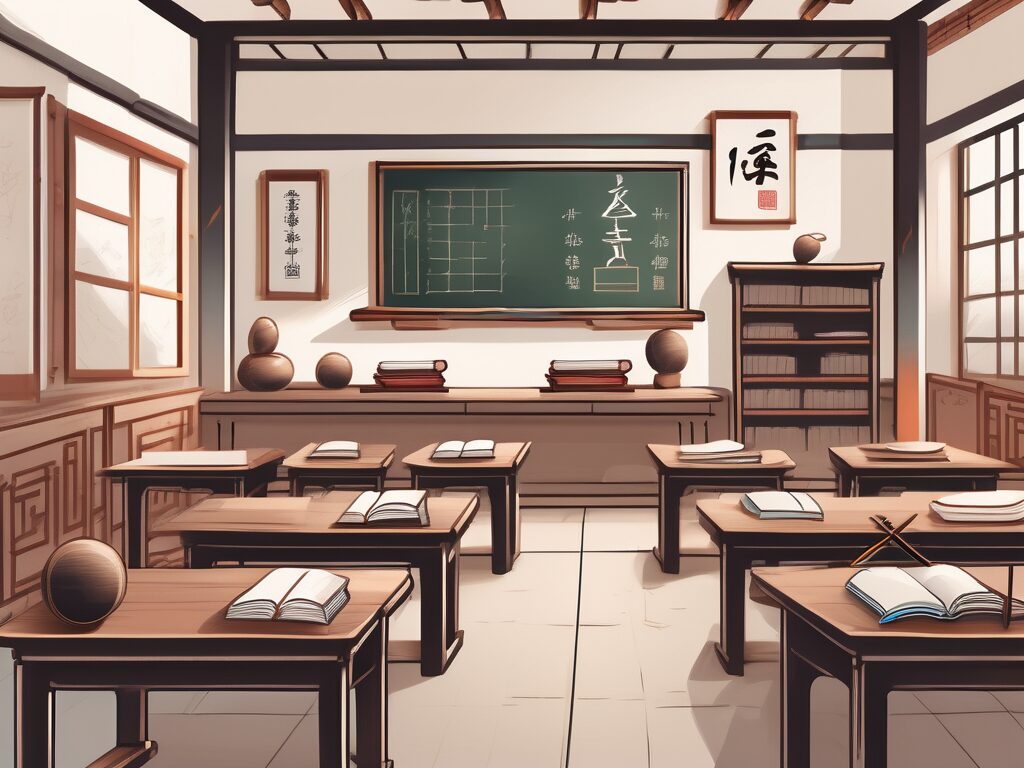Education in China is a topic of great interest and importance, not just for the country’s own citizens, but for the global community at large. As the world’s most populous nation, the policies and practices that govern Chinese education have far-reaching implications. In this piece, we’ll delve into five key issues that are currently shaping the landscape of education in China. We’ll explore the government’s role in each of these areas, and consider the potential impact on students, teachers, and society as a whole.
1. The Gaokao System
What is the Gaokao System?
The Gaokao, or ‘High Test’, is China’s national university entrance exam. It’s a high-stakes, high-pressure test that determines the future of millions of Chinese students each year. The Gaokao system is a bit like the A-levels in the UK, but on a much larger scale and with arguably more at stake.
Government Policies and Controversies
The Chinese government has long defended the Gaokao system as a meritocratic tool that enables social mobility. However, critics argue that it places excessive pressure on students and contributes to a narrow, test-centric view of education. In recent years, the government has introduced reforms aimed at reducing stress and promoting a more holistic approach to education. These include measures to de-emphasise test scores and encourage universities to consider other factors, such as extracurricular activities and personal qualities, in their admissions decisions.
2. Educational Inequality
The Urban-Rural Divide
Like many countries, China grapples with significant educational inequality. One of the most glaring disparities is the urban-rural divide. Schools in China’s bustling cities often have more resources and better-qualified teachers than their rural counterparts. This is akin to the divide seen between state and private schools in the UK.
Government Efforts to Bridge the Gap
The Chinese government has implemented various policies to address this issue. These include efforts to improve rural school infrastructure, attract more qualified teachers to rural areas, and provide additional support for disadvantaged students. However, progress has been slow and uneven, and the gap remains a significant challenge.
3. The One-Child Policy and its Legacy
Impact on Education
The One-Child Policy, which was in effect from 1979 to 2015, has had a profound impact on Chinese society and education. With fewer children to invest in, parents and grandparents often place high expectations on the only child. This has contributed to a highly competitive educational environment.
Policy Changes and Future Implications
With the phasing out of the One-Child Policy and the introduction of the Two-Child and now Three-Child Policy, the dynamics of Chinese education may change. It remains to be seen how these policy shifts will affect educational expectations and competition.
4. The Role of Private Education
Private vs. Public Education
Private education is a growing sector in China. Many parents are attracted to private schools for their smaller class sizes, innovative teaching methods, and international curricula. However, the cost of private education is prohibitive for many families, raising concerns about equity and access.
Government Regulation of Private Education
The Chinese government has implemented strict regulations on private education, including limits on profit-making and foreign investment. These measures are intended to ensure quality and protect students’ interests, but they have also sparked debate about the role of the private sector in education.
5. The Push for ‘Patriotic Education’
What is ‘Patriotic Education’?
‘Patriotic education’ is a cornerstone of China’s education policy. The government views education as a tool to foster national identity and loyalty. This includes teaching students about China’s history, culture, and political system in a positive light.
Critiques and Controversies
While the government argues that patriotic education is necessary for national unity and stability, critics contend that it can veer into indoctrination. There are concerns about the lack of critical thinking and open discussion in classrooms, particularly on sensitive topics.
In conclusion, government policies play a crucial role in shaping China’s education system. From the Gaokao system to educational inequality, the legacy of the One-Child Policy, the role of private education, and the push for patriotic education, these issues reflect the complexities and challenges of educating over a billion people in a rapidly changing world.
Empower Your Educational Career with IPGCE
As China continues to evolve its educational policies, the need for qualified educators who understand these complexities grows. Whether you’re facing the challenges of educational inequality, adapting to policy changes, or seeking to enhance your teaching credentials, IPGCE is here to support your professional journey. Our International Postgraduate Certificate in Education is designed to overcome barriers such as stringent qualification requirements, limited career progression, professional isolation, and the need for a comprehensive understanding of global education systems. By joining the UK’s #1 Teacher Training Course, you’ll gain access to a program that not only increases your chances of securing international teaching positions but also fosters significant career growth. Don’t let inadequate credentials or isolation from professional communities limit your potential. Join the UK’s #1 Teacher Training Course today and take a decisive step towards enriching your professional development and expanding your educational impact.

